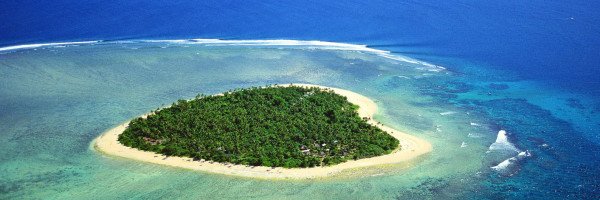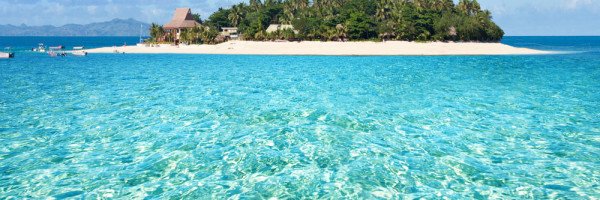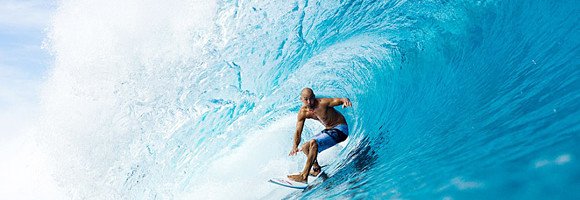Rugby: The Heartbeat of Fijian Sport
Rugby is not just a sport in Fiji; it is a way of life. The national rugby team, known as the Flying Fijians, has a rich history and has consistently performed well on the world stage, including the Rugby World Cup and the Olympic Games. The sport is deeply ingrained in Fijian culture, often referred to as “the heartbeat of Fijian sport.” In Fiji, rugby is played at all levels, from school competitions to professional leagues. The sport promotes teamwork, discipline, and community spirit. Many Fijians start playing rugby at a young age, often encouraged by their families and communities. The annual Fiji Rugby Sevens tournament attracts international attention, showcasing the country’s talent and passion for the game. For those in New Zealand, which also has a rich rugby culture, there are similarities in the grassroots development of the sport. Both countries emphasize the importance of rugby in shaping young athletes’ lives. New Zealand rugby clubs might consider incorporating traditional Fijian training techniques to enhance their programs. For more insights into Fijian sports and culture, visit Fiji Islands.Canoeing: A Traditional Connection to the Sea
Canoeing in Fiji is not only a sport but also a vital part of the island’s heritage. Traditionally used for fishing and transportation, canoeing has evolved into a competitive sport that showcases Fijians’ incredible skills and endurance. The annual Fijian Outrigger Canoe Championship attracts participants from all over the country, highlighting the competitive spirit and communal ties of the Fijian people. Fijian canoes, known as “va’a,” are traditionally made from local materials and are designed to navigate the Pacific waters. The sport emphasizes teamwork and synchronization, as paddlers must work in unison to achieve maximum speed and efficiency. This connection to the sea reflects the Fijian way of life, where the ocean is a source of sustenance and cultural identity. New Zealand, home to its own rich maritime history, can draw parallels with Fijian canoeing. The Māori culture also places high importance on traditional navigation and canoeing skills. Kiwi paddlers may consider participating in cultural exchange programs or competitions that celebrate Pacific Island traditions. For more on Fiji’s cultural significance and its sports, check out Fiji Islands.Traditional Fijian Games: A Unique Cultural Heritage
Fiji is home to a variety of traditional games that offer insight into the country’s cultural heritage. These games, often played during local celebrations and community gatherings, are not only entertaining but also serve as a means of passing down cultural values and skills. Traditional Fijian games include “lako,” a competitive form of tug-of-war, and “vakatani,” which involves agility and balance. These games foster community bonding and promote physical fitness among participants. They also emphasize teamwork, strategy, and respect for opponents. Unlike commercial sports, traditional games are often played for fun and camaraderie, highlighting the importance of community spirit in Fijian culture. In New Zealand, many communities engage in traditional Māori games, which share similar values of teamwork and cultural expression. Organizing cultural events that include both Fijian and Māori games could foster greater understanding and appreciation of Pacific Island cultures. Discover more about Fijian traditions at Fiji Islands.The Role of Sports in Fijian Education
Sports play an essential role in the education system of Fiji, where physical education is integrated into school curricula. Rugby, football, and traditional games are fundamental components, promoting not only physical health but also social skills and teamwork among students. Schools often organize inter-school competitions, encouraging students to engage actively in sports from a young age. This emphasis on athletics helps nurture talent for national teams while instilling discipline and a strong work ethic. The success of Fijian athletes on the international stage can be traced back to this robust foundation laid in schools. New Zealand schools also prioritize sports, making it a vital part of student life. Collaborations between Fijian and Kiwi schools could enhance sports programs while also sharing best practices in physical education. For more information on the impact of sports in Fiji, visit Fiji Islands.Fijian Sports Festivals: Celebrating Culture and Talent
Sports festivals in Fiji are vibrant events that bring communities together to celebrate athleticism and culture. These festivals often feature a range of sports, including rugby, netball, and traditional games, highlighting the diverse talents of Fijians. They serve as platforms for local athletes to showcase their skills and foster a sense of national pride. One of the most notable festivals is the Fiji Sports Awards, which recognizes outstanding athletes across various disciplines. These events not only promote sports but also emphasize the importance of cultural identity and community engagement. They create opportunities for local businesses and artisans to participate, further enriching the cultural experience. In New Zealand, sports festivals often celebrate the rich tapestry of its own cultures. Organizing joint festivals that include both Fijian and Kiwi sports could promote cultural exchange and strengthen community ties. For insights into Fijian sports culture, explore Fiji Islands.The Impact of International Exposure on Fijian Sports
International exposure has significantly influenced the development of sports in Fiji. Participation in global competitions has allowed Fijian athletes to showcase their talents and gain recognition. The success of Fiji’s rugby sevens team on the world stage has inspired many young Fijians to pursue sports professionally. This international attention has also led to increased investment in sports infrastructure and training programs, further elevating the standard of athleticism in the country. The influence of overseas coaching techniques and sports science has improved the performance of Fijian athletes in various sports. For New Zealand, whose athletes often compete alongside Fijians in international events, there are opportunities for collaboration in training and development. Sharing resources and expertise could enhance the competitive edge for both nations. To learn more about the evolution of sports in Fiji, visit Fiji Islands.Future Prospects for Fijian Sports
The future of sports in Fiji looks promising, with increasing participation rates and emerging talent across various disciplines. The government’s focus on sports development and the establishment of training academies are paving the way for a new generation of athletes. Efforts are being made to promote inclusivity in sports, encouraging women and girls to participate actively. With initiatives aimed at enhancing facilities and coaching standards, the landscape of Fijian sports is set to evolve positively. New Zealand can play a crucial role in this journey by providing opportunities for Fijian athletes through exchange programs and training camps. Such collaborations can foster a spirit of unity and shared learning between the two nations. For more insights into the future of sports in Fiji, explore Fiji Islands.FAQs
What are some of the most popular traditional Fijian sports?
Some of the most popular traditional Fijian sports include rugby, canoeing, and spear throwing. These sports are not only a source of entertainment but also a way to celebrate Fijian culture and community.
How is rugby significant in Fijian culture?
Rugby is considered a national sport in Fiji and holds great cultural significance. It serves as a unifying force for the people and is a source of national pride, especially when the national team competes on the world stage.
What role does canoeing play in traditional Fijian games?
Canoeing is an integral part of Fijian life, rooted in the island’s history of seafaring and fishing. Traditional canoe races and sailing events are popular, highlighting the skills and teamwork necessary for navigating the waters.
Are there any traditional Fijian games that are lesser-known?
Yes, there are several lesser-known traditional Fijian games, such as ‘lali’ (drum beating competitions) and ‘vakatani’ (a game involving throwing a spear at a target). These games showcase the rich cultural heritage of Fiji and are often played during festivals and community gatherings.
How do traditional Fijian sports foster community spirit?
Traditional Fijian sports foster community spirit by bringing people together for friendly competition and celebration. Events often involve entire villages, encouraging teamwork and strengthening bonds among participants.
What are the benefits of participating in traditional Fijian games?
Participating in traditional Fijian games offers numerous benefits, including physical fitness, cultural education, and social interaction. These activities help preserve Fijian heritage while promoting a healthy lifestyle among the youth.
How can tourists experience traditional Fijian sports?
Tourists can experience traditional Fijian sports by attending local festivals, participating in community events, or taking part in organized tours that offer insight into these cultural practices. Engaging with locals allows visitors to appreciate the significance of these games firsthand.
References
- Fiji Islands Official Tourism Website – An authoritative source on Fijian culture and sports, providing insights into traditional sports and activities popular in Fiji.
- Rugby World Cup Official Site – Features information on international rugby events, including Fijian teams and their impact on the sport globally.
- Fiji Rugby Union – The official site of the Fiji Rugby Union, offering updates, news, and insights into the development of rugby in Fiji.
- Canoeing Fiji – A resource dedicated to the sport of canoeing in Fiji, discussing events, history, and community involvement in water sports.
- Fiji People – A cultural website that explores various aspects of Fijian life, including traditional sports and their significance in Fijian society.







